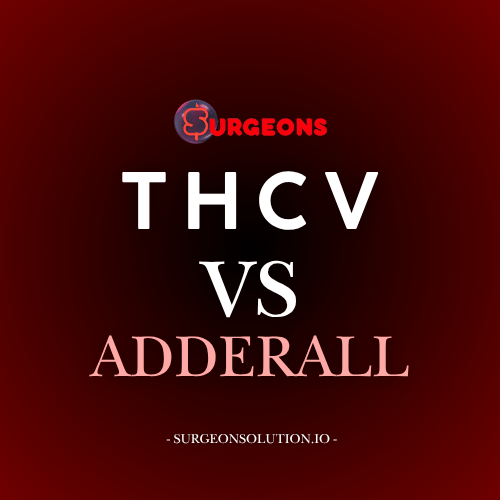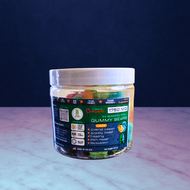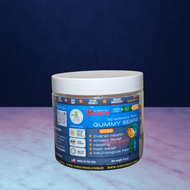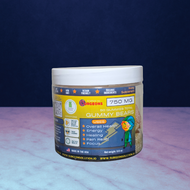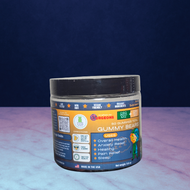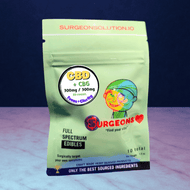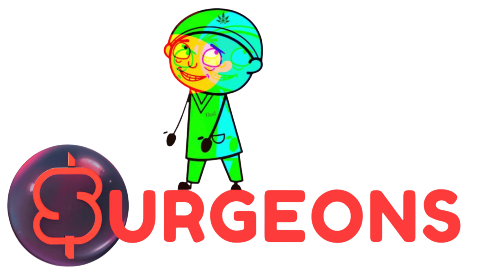Surgeons Online Cannabinoid Academy
Can THCV Replace Adderall? Insights into Its Efficacy
Analyzing THCV as a Viable Substitute for Adderall
Discover how THCV (tetrahydrocannabivarin) may serve as a safe, non-stimulant alternative to Adderall. This video explores THCV’s cognitive benefits, real user feedback, and legal insights, all backed by cannabinoid research.
Watch this video on youtube and subscribe to our channel!
Table Of Contents:
- THCV as an Adderall Substitute Medication: A Comprehensive Guide
- Understand THCV and Its Potential as a Medication Alternative
- Explore the Benefits of Using THCV as an Adderall Substitute
- Consider the Risks Associated With THCV Usage Over Adderall
- Learn How to Incorporate THCV in Your Treatment Plan
- Review Current Research on THCV’s Effectiveness for Attention Disorders
- Investigate the Market Availability of THCV Products
- Frequently Asked Questions
- Final Thoughts
THCV as an Adderall Substitute Medication: A Comprehensive Guide
THCV (Tetrahydrocannabivarin) is emerging as a promising alternative to traditional stimulant medications like Adderall for attention disorders. Researchers and users note its potential to enhance focus and cognitive function while reducing some stimulant-associated risks. This guide addresses key aspects of THCV—from its definition and benefits to risks, research findings, and practical treatment incorporation.
Understand THCV and Its Potential as a Medication Alternative
THCV is a cannabinoid found in cannabis that differs chemically and physiologically from THC. It may produce stimulating effects without the typical intense psychoactivity, and its action appears to modulate neural receptors rather than prompting a direct release of catecholamines. This mechanism has spurred interest in its use as a substitute for traditional stimulant medications.
Define THCV and Its Primary Effects on the Body
THCV is a non-intoxicating cannabinoid interacting with the endocannabinoid system, acting as a CB1 receptor antagonist and, at higher doses, a weak agonist. Its primary effects include increased alertness, potential appetite suppression, and neuroprotection. By modulating dopamine pathways, THCV may enhance cognitive control and attention, addressing the dopamine imbalances often seen in attention disorders.
Compare THCV With Traditional Medications for Attention Disorders
Unlike Adderall—which increases norepinephrine and dopamine release and may cause high blood pressure, appetite suppression, and dependency—THCV works through receptor modulation. Early studies suggest THCV supports attention and executive function with fewer cardiovascular and dependency concerns, making it appealing for those seeking a natural alternative with a reduced risk of abuse.
Examine the Legal Status of THCV in Various Regions
Globally, THCV’s legal status remains mixed. In North America and Europe, it often exists in a legal gray area like other cannabis-derived compounds. While some areas have embraced cannabis products, strict regulations persist in others. Users and healthcare providers must review local laws and regulation updates to ensure compliance when considering THCV for therapeutic use.
Explore the Benefits of Using THCV as an Adderall Substitute
THCV may offer cognitive enhancement, mood stabilization, and a better side effect profile compared to Adderall. Proponents claim it provides a balanced state of mental clarity without the high dependency risks of traditional stimulants. For more information, visit the cannabinoid academy.

Identify Cognitive Enhancements Offered by THCV
Evidence suggests THCV can improve short-term memory, attention span, and overall executive function. Its modulation of CB1 receptors may enhance neural firing patterns in brain regions responsible for focus and information processing. Improved transitions between cognitive tasks and reduced mental fatigue have been reported, with some users noting a 15–20% improvement in sustained attention.
Discuss Potential Side Effects Relative to Adderall
Adderall’s side effects can include elevated blood pressure, appetite suppression, and dependency. In contrast, THCV is generally better tolerated, with reports of mild anxiety, dry mouth, and minimal appetite changes. Importantly, THCV has not been associated with severe cardiovascular or neuropsychiatric events, making it an attractive option for those wary of stimulant-related risks.
Evaluate User Experiences and Testimonials About THCV
Many users report that THCV helps boost clarity, focus, and energy levels while reducing jitteriness and anxiety. Testimonials often mention a “calmer yet more focused” state compared to Adderall. Although systematic data is still emerging, these positive experiences have prompted further scientific exploration and clinical trials.
Consider the Risks Associated With THCV Usage Over Adderall
Despite its promise, THCV is not without risks. Safety concerns remain regarding dosing, long-term effects, and individual variability in response.
Analyze the Pharmacological Differences Between THCV and Adderall
THCV and Adderall function via distinct mechanisms. Adderall produces rapid neurotransmitter release for quick stimulation, whereas THCV offers more subtle, sustained effects through receptor modulation. As a result, users switching to THCV might notice a difference in the immediacy and intensity of its benefits, which requires careful dosing and gradual titration. Adderall
Review Safety Concerns and Recommendations for First-Time Users
New users should start with a low dose (around 5–10 mg) and monitor their response over several days before increasing the dosage. Some may experience transient effects, such as mild anxiety or gastrointestinal discomfort. It is advisable to keep detailed records of reactions and consult with a healthcare provider experienced in cannabinoid therapeutics for personalized dosing recommendations and to avoid potential drug interactions.
Investigate Long-Term Effects of THCV as a Substitute Medication
Long-term effects of THCV are not yet fully understood. Preliminary research indicates potential neuroprotective benefits and reduced oxidative stress, which may support long-term cognitive health. Researchers are investigating whether THCV can prevent tolerance build-up and dependency—issues linked to prolonged Adderall use. More robust clinical studies are needed to determine optimal dosing and safety over extended periods.
Learn How to Incorporate THCV in Your Treatment Plan
For those considering THCV as an alternative or supplement to stimulants, it is important to incorporate it within a structured, medically guided treatment plan to maximize benefits and minimize risks.

Discuss the Importance of Consultation With a Healthcare Provider
Before integrating THCV, consult with a healthcare provider who can assess potential drug interactions and adjust existing medication dosages. Professional guidance is vital given individual neurochemistry differences, ensuring THCV is both safe and effective. An informed provider can help determine the optimal dose and frequency, monitoring any physiological or psychological
.
Outline Dosage Guidelines for Effective THCV Use
While standardized dosage guidelines are still emerging, initial recommendations suggest starting with 5–10 mg and gradually increasing as needed. For cognitive enhancement, doses of 10–30 mg per day, divided into one or two administrations, have been explored. Users should document their experiences, vital signs, and any side effects while considering factors like
across different dosage forms (oil, edibles, capsules).
Share Tips for Monitoring Your Response to THCV
Effective monitoring is key to optimizing THCV use. Users are encouraged to maintain a detailed journal recording dosage timing, focus, memory, clarity ratings, and any side effects. Periodic self-assessments and consultations with a healthcare provider can help adjust the dosage and improve treatment outcomes. Digital tracking tools or mobile applications may further support personalized tracking of cognitive performance and side effects.
Review Current Research on THCV’s Effectiveness for Attention Disorders
Research into THCV as a cognitive enhancer is still in its early phases, yet several studies show promising outcomes. Early findings suggest it may address attention deficits with a lower risk profile compared to conventional stimulants.
Highlight Key Findings From Recent Studies on THCV
Recent studies indicate that THCV may enhance neural plasticity and balance dopaminergic states, which are crucial for attention regulation. For example, one study observed improvements in task response times and sustained attention in participants using THCV. Animal research supports these findings by demonstrating THCV’s role in modulating neurotransmitter release in key brain regions.
Summarize Expert Opinions on THCV as a Substitute for Adderall
Experts in
are optimistic about THCV functioning as an alternative to traditional stimulants. Its partial antagonism at CB1 receptors and modulation of dopamine pathways may provide cognitive benefits without the overstimulation seen with amphetamines. Many clinicians appreciate THCV’s potential to offer a more stable cognitive state with reduced anxiety and fewer cardiovascular risks, though they stress the need for further research.
Identify Gaps in Current Research and Future Directions
Although early data is encouraging, significant gaps remain. Large-scale, double-blind clinical trials are needed to establish optimal dosing, long-term safety, and efficacy across diverse populations. Additionally, further studies must clarify THCV’s interactions with other medications and explore cumulative effects over long-term use. Funding and interdisciplinary collaboration will be essential to answer these questions and develop comprehensive
.
Investigate the Market Availability of THCV Products
As interest in THCV grows, a variety of products are entering the market for both recreational and medicinal uses. Consumers should prioritize high-quality, potent products backed by reliable testing.

List Reliable Brands and Products for THCV Consumption
Reputable brands such as Green Spectrum, Cannabiotix, and PureXtract have emerged, emphasizing third-party lab testing, organic cultivation, and consistent cannabinoid profiles. Their THCV oils, capsules, and edibles usually come with detailed Certificates of Analysis (COA) and transparent sourcing information, making them recognizable to consumers and healthcare professionals alike.
Discuss Pricing, Accessibility, and Purchasing Options
Prices for THCV products typically range from $50 to $100 for a 30-day supply of oil, with bulk or subscription models sometimes offering cost benefits. As market accessibility improves, products are increasingly available online through verified dispensaries and specialty retailers. Consumers should compare product descriptions and reviews to ensure compliance with regulatory standards and potency claims, and always verify local legal status before purchasing.
Share Consumer Safety Tips for Buying THCV Products
When shopping for THCV, buyers should ensure vendors provide transparent lab results confirming cannabinoid profiles and the absence of contaminants such as heavy metals or pesticides. Customer reviews and third-party certifications are valuable for verifying product quality. Additionally, beginning with lower dosage products to assess personal tolerance and keeping a usage log is advised, along with consulting healthcare providers knowledgeable in cannabinoid therapies.
Frequently Asked Questions
Q: What exactly is THCV and how does it differ from THC? A: THCV is a cannabinoid that generally produces less psychoactivity while offering stimulating and cognitive-enhancing properties. It modulates the endocannabinoid system, particularly affecting dopamine and CB1 receptors. For more information, visit surgeons online cbd cannabinoid academy.
Q: Can THCV be used safely as an alternative to Adderall for attention disorders? A: Preliminary studies and user testimonials suggest THCV may improve focus and memory. However, long-term safety and dosing standards are still under investigation, so consultation with a healthcare provider is important before making any changes.
Q: Are there any known side effects of using THCV? A: Reported side effects are mostly mild, such as dry mouth or slight anxiety. Unlike Adderall, THCV has not been linked to severe cardiovascular risks, but starting at a low dose is recommended.
Q: How do I know if a THCV product is reliable? A: Reliable products should include third-party lab results (COA), clearly stated cannabinoid concentrations, and come from reputable brands known for quality and transparency. Check vendor reputation and customer reviews.
Q: What steps should be taken when transitioning from Adderall to THCV? A: A gradual transition under a healthcare provider’s guidance is advisable. Begin with a low dose of THCV, monitor cognitive and physical responses, and adjust the dosage as needed.
Q: Is THCV legally available in my area? A: THCV’s legal status varies by region. It is essential to check local cannabis laws since regulations differ across states and countries.
Q: Can THCV be combined with other treatments for attention disorders? A: Yes, but only under the supervision of a healthcare provider to manage potential drug interactions and ensure optimal therapeutic outcomes.
Q: What research is currently being conducted on THCV and cognition? A: Current studies focus on THCV’s impact on neural plasticity, dopamine modulation, and long-term cognitive outcomes, aiming to determine effective dosing and its potential as a substitute for stimulant medications.
Final Thoughts
Try Surgeons THCV Infused Gummies!
THCV offers promise as an alternative therapy to traditional medications like Adderall in treating attention disorders. Its unique receptor-modulating properties, cognitive benefits, and lower risk of severe side effects make it a compelling option for those seeking non-stimulant treatments. Ongoing research and expert testimonials highlight its potential, though careful dosing and professional guidance remain essential. As clinical understanding and product availability evolve, THCV may play an important role in holistic, personalized treatment plans for improved mental focus and overall brain health.

